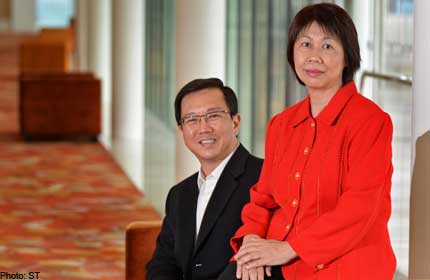Voluntary welfare organisations (VWOs) said they welcome the setting up of a volunteer youth corps.
However, they noted that sustained funding and support for those who provide the volunteer training will be critical.
VWOs will be roped in to build up the volunteer youth corps’ strong training component.
Details are pending, but the National Youth Council is looking into funding for these training providers.
Iris Lin, senior social worker at Fei Yue Community Services, said: “A lot of times we are running on shortage of manpower, so with that kind of funding it will really justify a lot of the time and hours put into for instance, training volunteers, even for meetings, discussions with them. All these take time.”
The workflow for VWOs is a concern as well, but Fei Yue Community Services said they want to be sure they can give volunteers a meaningful experience.
One way is to encourage youths to come up with their own projects.
Iskandar Idris, member of the management committee at Malay Youth Literary Association, said: “Youth can contribute first of all, in providing fresh ideas that we may have overlooked, and second, youth may also help to identify certain factions of society that are maybe currently not captured in existing programmes that VWOs are offering.”
Most organisations welcome the boost in volunteer numbers the youth corps will bring about. The target is 6,000 every year.
But for organisations that offer specialised social services, there is a limit to what young, inexperienced volunteers can do.
For example, the Singapore Anti-Narcotics Association (SANA) focuses on rehabilitating ex-drug offenders and this requires professional counselling skills.
However, SANA has education and awareness programmes that are in need of youth volunteers.
Steven Tham, assistant director at SANA, said: “In a society like Singapore, very affluent, we really need to help them (young people) to realise there are needs in Singapore. Many of our youths do not see these needs.”
This is one perception that welfare organisations said they hope the volunteer youth corps will change.
Source: CNA

